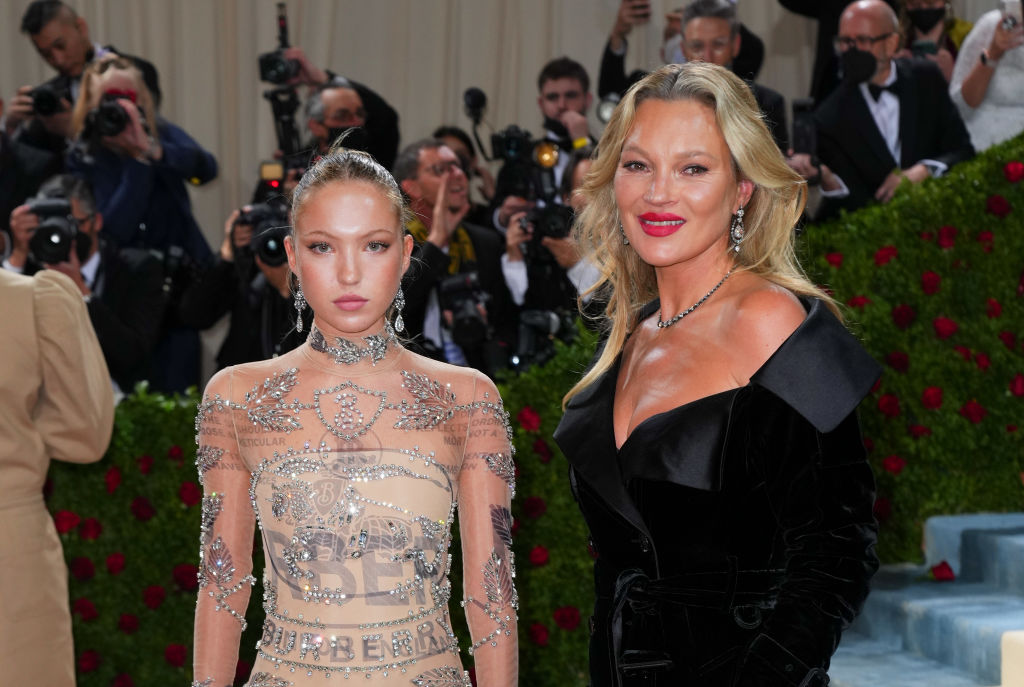Constantly low energy and craving sugar? You could be experiencing blood sugar spikes
Here's how to spot the tell-tale red flags.

If you've read our guide to the Glucose Goddess hacks, by now, you'll know that your blood sugar levels can impact everything from your mood, to your energy levels, to your weight and skin.
The biochemist went viral on Instagram last year after sharing graphs of her own blood sugar spikes after eating certain meals - everything from pasta, to rice, to poke bowls.
Analysing the results, she worked out five key blood sugar "hacks" which allow you to eat as you always do, but stabilise your blood sugar levels, in turn reducing inflammation in your body and risk of more serious diseases like diabetes.
Keen to read more about blood sugar levels, said hacks, the tell-tale symptoms or signs that yours is spiking too frequently (without an in-arm tracker), plus what health problems spiking blood sugar can cause?
Keep scrolling, and don't miss our guides to energy boosting foods, while you're here.
Blood sugar spikes: your guide, plus how spiking can affect weight, mood and more
What are your blood sugar levels?
First things first: what is your blood sugar level and how might someone who doesn't have diabetes understand it? "Simply put, your blood sugar level is the amount of glucose circulating in your body," shares Inchauspé.
"Glucose is very important and is your body's favourite source of energy, and while some blood sugar spikes are normal, regular spikes can lead to health problems."
Marie Claire Newsletter
Celebrity news, beauty, fashion advice, and fascinating features, delivered straight to your inbox!
How does glucose enter the body? Simple - "we get glucose by eating sweet and starchy foods," the biochemist goes on. "That said, if we give too much glucose to our body, problems can start happening."
A post shared by Jessie Inchauspé (@glucosegoddess)
A photo posted by on
Why are regular blood sugar levels important?
Good question - because in reality, you've probably only ever heard it used in relation to diabetics before reading this article.
That said, if your glucose levels are out of whack, you can start to experience negative side effects, shares the biochemist.
Expect the following:
- Cravings
- Fatigue
- Brain fog
- Poor sleep
- Eczema
- Psoriasis
- Hormonal issues including PCOS and more.
In the longer term, regular blood glucose spikes could lead to the development of more serious chronic conditions, like type 2 diabetes.
A post shared by Jessie Inchauspé (@glucosegoddess)
A photo posted by on
9 tell-tale signs your blood glucose levels are spiking
1. You experience regular and intense cravings
If you're someone who regularly craves sugar, feels addicted to sweet treats, or who feels "out of control" around sugary foods, it might be worth trying some of Inchauspé's glucose hacks.
While there's nothing wrong with enjoying a sweet treat from time to time, feeling out of control or constantly craving them is normally a red flag for blood glucose spikes and hormonal imbalance.
As she points out in her new book, The Glucose Goddess Method, in 2011, a breakthrough study from Yale University changed our understanding of cravings. "Researchers discovered that, when the subjects had stable glucose levels, food wasn't enticing. However, when their glucose levels were low, the craving centre of their brains lit up and they rated the foods they were seeing much higher on the “I want to eat it” scale."
This is what can happen after a glucose spike, she goes on - you crave foods that you otherwise wouldn’t bat an eyelid at.
Try this: Eat your sweet treat after a balanced meal, advises the biochemist. This way, your stomach will digest the fibre, protein, fat and carbs from your meal first, causing less of a glucose spike from the sugar.
2. Fatigue
Another common sign you're on a "glucose rollercoaster," as Inchauspé calls it, is intense or even chronic fatigue.
"Too much glucose affects the organelles responsible for making energy in our cells, compromising energy production," she explains. This will ultimately leave you feeling exhausted, with studies highlighting that leaving your glucose to spike all day without attempting to flatten the curves can lead to greater fatigue.
Try this: Eat balanced meals and snacks regularly - the biochemist advises every three to four hours - in order to ensure your blood sugar levels stay stable and, of course, prioritise good quality sleep, too.
3. Being hungry all the time
If you feel hungry all the time - despite eating regular meals - then it might be a sign that your blood glucose levels are spiking regularly.
Fun fact for you: Inchauspé shares that if you compare two meals that contain the same number of calories, the one that leads to a smaller glucose spike will keep you feeling full for longer.
Try this: Aim for a balance of protein, fat and carbs with every meal and snack.
As Inchauspé reassures, when you start applying the hacks, you'll likely immediately notice how these symptoms change.
Other tell-tale red flags you might have a hormonal imbalance or spiking blood sugar levels include:
- Weight gain
- Difficulty sleeping
- Poor mental health and low mood
- Brain fog
- Acne, eczema and skin issues
- Fertility, PCOS and hormonal issues.
If you're experiencing any of the above, incorporating Inchauspé's simple but effective hacks could help boost your overall health.
That said, if you are struggling, it's always worth booking an appointment with a specialist or visiting your GP to get to the root cause of your issues.
What does regulating your blood sugar spikes feel like?
According to a testimonial in Glucose Goddess Inchauspé's book, "unbelievably good."
“I used to be always tired and I ate a lot of sweets, which made me feel guilty. It’s hard for me to believe that such a simple change changed so much. First of all, I have energy all day long – I do not feel like sleeping at all – and, most importantly, the desire for sweets is very much fixed, even though I had a huge problem with it," shares one fan who's incorporated the biochemists hacks into her own day-to-day.
Another adds: "I have will and energy back! And now, even though I get up to feed my youngest child in the middle of the night, I wake up full of energy instead of feeling dead like I did before!”
Still on the fence? A final tester reveals: "What helped me is seeing and feeling the results. Once you feel a change, it jumpstarts something in you and motivates you. It makes you trust what you’re doing – you know it isn’t a gimmick. With these hacks, you will see immediate results most of the time, even if they’re small. For me, the first one was not falling asleep right after eating. The second one was not bloating. That did it for me.”

Ally Head is Marie Claire UK's Senior Health and Sustainability Editor, nine-time marathoner, and Boston Qualifying runner. Day-to-day, she heads up all strategy for her pillars, working across commissioning, features, and e-commerce, reporting on the latest health updates, writing the must-read wellness content, and rounding up the genuinely sustainable and squat-proof gym leggings worth *adding to basket*. She also spearheads the brand's annual Women in Sport covers, interviewing and shooting the likes of Mary Earps, Millie Bright, Daryll Neita, and Lavaia Nielsen. She's won a BSME for her sustainability work, regularly hosts panels and presents for events like the Sustainability Awards, and is a stickler for a strong stat, too, seeing over nine million total impressions on the January 2023 Wellness Issue she oversaw. Follow Ally on Instagram for more or get in touch.
-
 Andrea's It List: Finishing touches that elevate any outfit
Andrea's It List: Finishing touches that elevate any outfitDon't underestimate the power of accessories that make your outfit pop
By Andrea Thompson
-
 The fashion set is obsessed with lace-up shoes right now—these are the best pairs to shop
The fashion set is obsessed with lace-up shoes right now—these are the best pairs to shopNew summer footwear obsession, unlocked
By Sofia Piza
-
 I tried Pilates roll-downs every day for a week - and was amazed at how quickly it eased years of stiffness
I tried Pilates roll-downs every day for a week - and was amazed at how quickly it eased years of stiffnessConsider my spine more mobile than before.
By Rebecca Shepherd
-
 Knowing how many calories you burn a day could be key to getting in your best shape ever - here's why
Knowing how many calories you burn a day could be key to getting in your best shape ever - here's whyTop experts explain the basic need-to-knows about metabolism.
By Chloe Gray
-
 Did you notice? Kate Moss’s daughter Lila wore her insulin pump to the Met Gala
Did you notice? Kate Moss’s daughter Lila wore her insulin pump to the Met GalaAnd we are *so* here for it.
By Ally Head